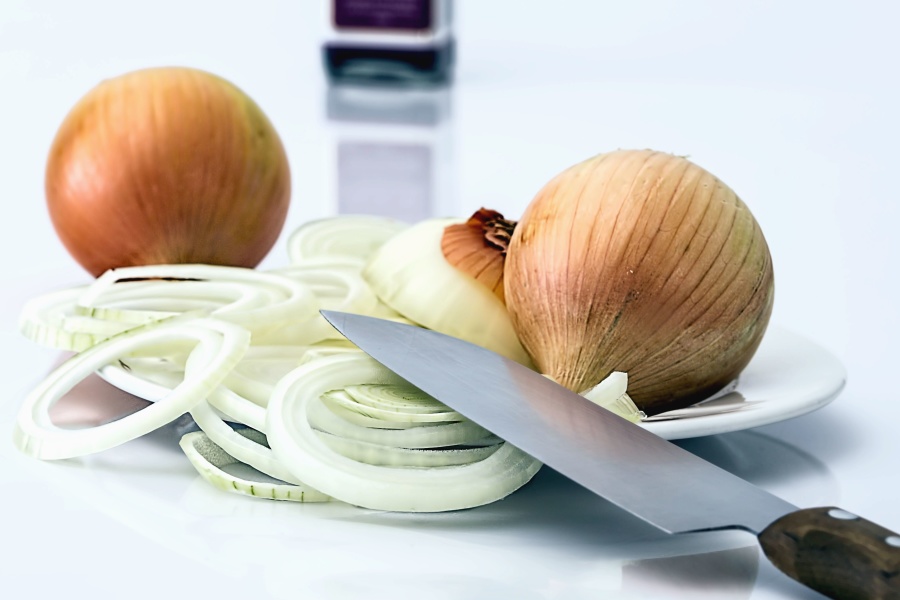Nutrient Overview
Calories: Low
Protein: Moderate
Fat: Low
Saturated fat: Low
Cholesterol: None
Carbohydrates: High
Fiber: Moderate
Sodium: Low
Main vitamin: Folate, Vitamin C
Main mineral: Calcium and Iron
Health Benefits
Onions are high in dietary fiber. Plus it’s a good source of Vitamin B, folate and Vitamin C. As you probably know Onions have sulfur compounds that can leave an unpleasant odor in your breath. But don’t worry, cooking onions minimize their smell since it breaks down the compounds of sulfur.
Medical disclaimer: Consuming large quantities of onions may reduce the effectiveness of blood thinners, too!
Buying & Storing Onions
When looking for the best types of onions, choose those that are firm and clean. They should also have smooth, dry and crisp skin, which should be free from black and mold spots. Avoid onions that have soft or wet skin, as this is a sign that they onions are already bad on the inside.
When serving onions, they are best when added and this goes especially for the green onions. As for leftover onions, store them in a cool cabinet where the temperature is 60°F or lower. There should also be plenty of air to keep onions dry. This will prevent them from sprouting.
If you store them properly, onions tend to stay fresh for at least three to four weeks. They can even retain their nutritional Vitamin C richness for at least six months if stored at a low enough temperature.
How To Prepare Onions
When preparing an onion, slice fresh onions under running water to prevent the loss of sulfur compound. You can also chill them for an hour prior to slicing it. The cold temperature helps prevent the loss of sulfur compound as well.
When peeling an onions outer skin heat it in boiling water and lift it with a slotted spoon before putting it under cold water. This should help the skin come off easily.



